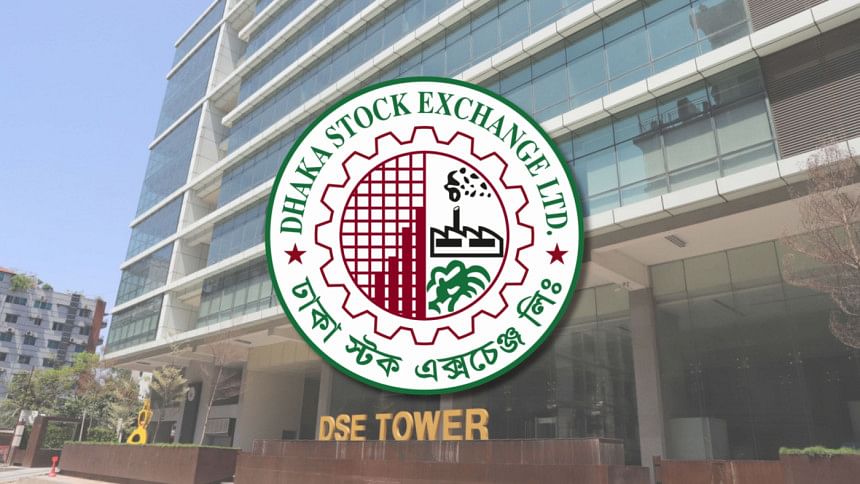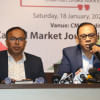DSE stocks rebound after massive fall

Indices of Dhaka Stock Exchange (DSE) rose yesterday on falling by a massive extent on the preceding three days, which was followed by protests by some investors in the capital's Motijheel who blamed some of the regulator's recent punitive measures.
The Bangladesh Securities and Exchange Commission (BSEC) last Tuesday imposed a fine of Tk 428.52 crore on five firms and four individuals for manipulating prices of Beximco stocks to realise gains of Tk 477 crore.
On September 26, it downgraded 28 companies to "Z" category for violating regulation by not properly paying investors their dividends.
These are prompting the sale of shares on a massive scale, which, in turn, is causing the indexes to fall, said the protesters yesterday. They also demanded resignation of the BSEC high-ups.
The DSEX, the DSE's benchmark index, went up by 8.59 points, or 0.16 percent, from that on the day prior to close at 5,462.
Similarly, the DSES index, which represents Shariah-compliant companies, edged up by 1.56 points, or 0.13 percent, to 1,221.
Meanwhile, the DS30, the index for the blue-chip firms, grew by 2.83 points, or 0.14 percent, to 1,990.
However, at Chittagong Stock Exchange, the CASPI, the premier index of the port city bourse, dropped by 19.26 points, or 0.13 percent, to settle at 15,271.
Of the issues that were traded at the DSE, prices of 209 rose, 138 decreased and the rest did not see any price movement.
The day's turnover, which indicates the total value of shares that were traded, stood at Tk 315 crore, a decrease of 28.42 percent.
The banking sector dominated the turnover chart, accounting for 26.05 percent of the total.
Block trades, meaning high-volume transactions in securities that are privately negotiated and executed outside of the open market, contributed another 2.6 percent.
IBN Sina Pharmaceutical was the most traded share, with a turnover of Tk 15.2 crore.
Sector-wise, jute, services and real estate and non-bank financial institutions (NBFIs) were the top three sectors that closed in the positive, according to the daily market update by UCB Stock Brokerage.
Mutual fund, telecom and life insurance became the top three sectors to close in the negative.
Most sectors that account for large amounts in market capitalisation, which refers to the value of a company's outstanding shares, were in the positive, according to the daily market update by BRAC EPL Stock Brokerage.
The NBFI sector booked the highest gain of 1.02 percent, followed by engineering (0.94 percent), pharmaceuticals (0.47 percent), fuel and power (0.17 percent) and banking (0.06 percent).
However, food and allied logged a loss of 0.02 percent and telecommunication another 0.66 percent.
Companies like Beximco Pharmaceuticals, National Bank, Renata, Orion Pharma, BRAC Bank, Olympic Industries, Prime Bank, Orion Infusion, LafargeHolcim Bangladesh and Bangladesh Shipping Corporation drew investors the most, said LankaBangla Financial Portal in its daily market update.
But none of the companies saw a double-digit growth in share prices. Of them, Beximco Pharmaceuticals made the largest gain of 3.06 percent.
Islami Bank Bangladesh, Grameenphone, Trust Bank, Beacon Pharmaceuticals, Eastern Bank, City Bank, GPH Ispat, JMI Hospital Requisite Manufacturing, Square Pharmaceuticals and United Commercial Bank suffered losses.
A high official of a stock brokerage said it was normal for investors to take a "wait-and-see" approach after market fluctuations.
However, market analysts said the BSEC took all decisions following rules and regulations.

 For all latest news, follow The Daily Star's Google News channel.
For all latest news, follow The Daily Star's Google News channel. 







Comments